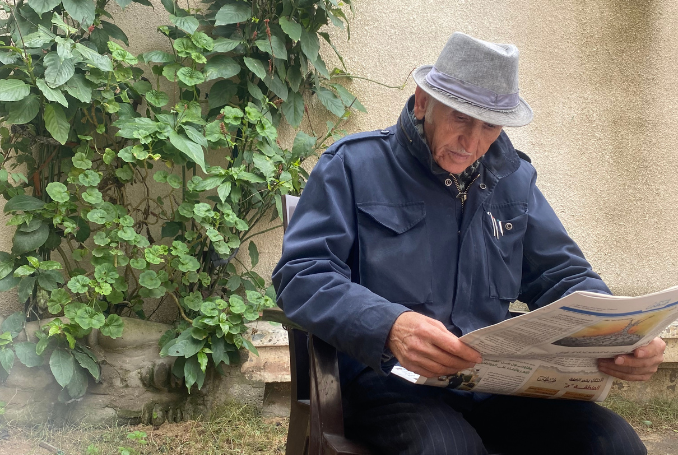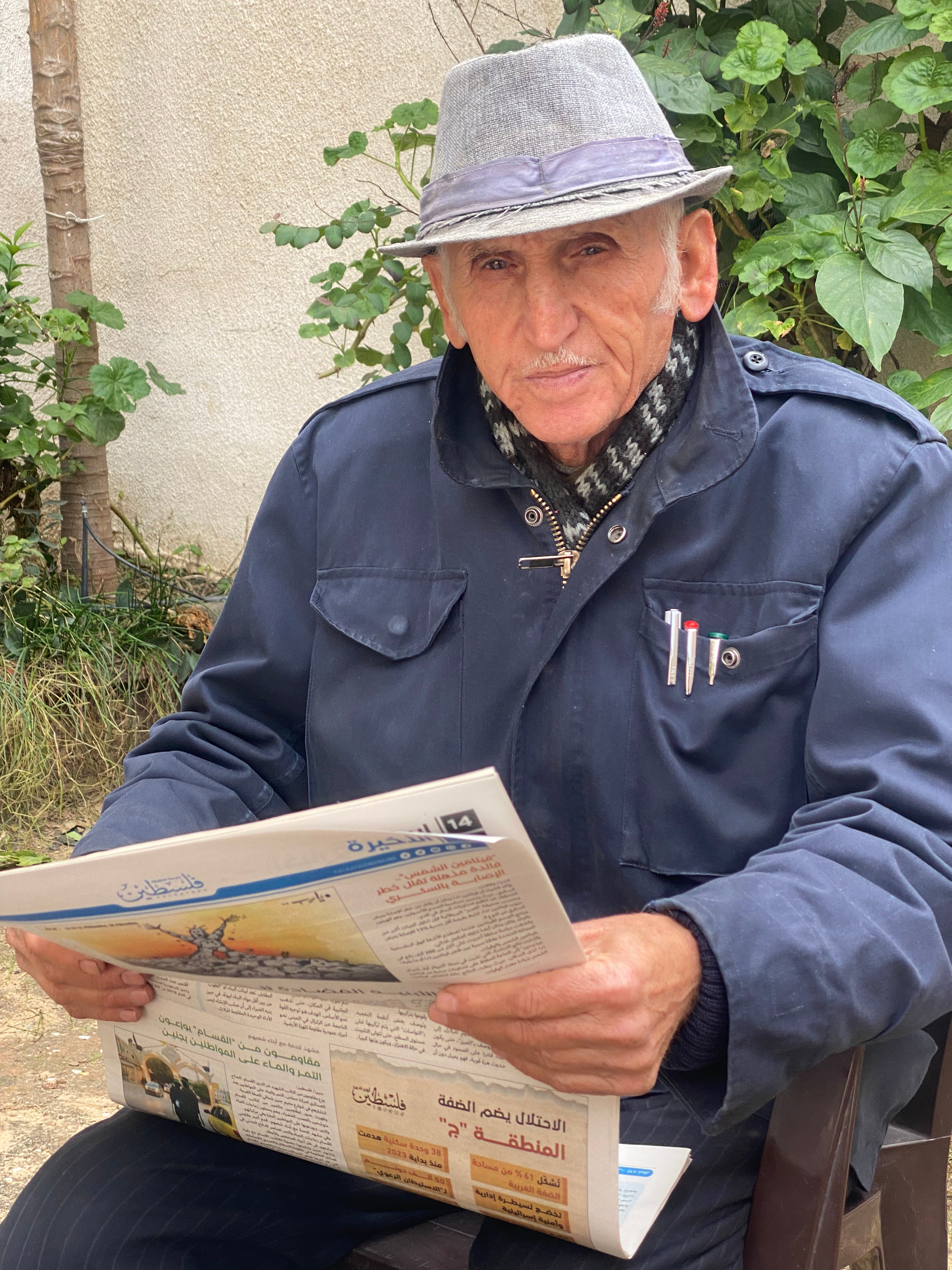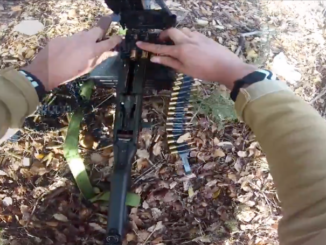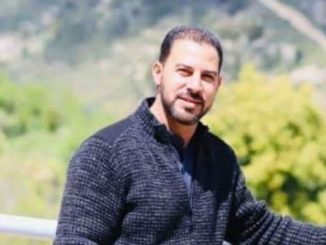
By Ahmed Dremly 
In a small room in his house in Gaza, Talal Ibrahim Taha, 74, has accumulated more than 20,000 newspapers, which he has been collecting since 1969.
Taha finds a sense of freedom in Gaza by collecting and reading the newspaper. For him, it is not only a way of staying informed about the political situation or the daily news in the besieged Strip, but it has also become “a very enjoyable hobby”, as he describes it.
Taha started reading newspapers when he was held in an Israeli prison in 1969. He was charged with letting Palestinian fedayeen (freedom fighters) eat grapes from his family’s vineyard. He used to guard that vineyard at night by staying in a small hut close to the entrance. “One night, I heard footsteps and people speaking in Arabic. They sounded exhausted,” Taha told The Palestine Chronicle.
“I recognized my uncle’s voice among them and remained in the hut. I was sure they were the fedayeen. They stayed for a few minutes, and then disappeared.”
Taha was detained for the first time in 1969, when he was still a student.

“They sentenced me to a year for feeding the fedayeen. I was honest during the investigation, but they wanted more information than I had given them,” the 74-year-old man said.
The Palestinian detainees were allowed to read a newspaper called Al-Anba. “It was my only way of passing time in jail. The daily newspaper was passed by turn among the detainees,” Taha explained.
“When I first started reading, I became increasingly curious, not only about the political situation in Palestine but also about normal life beyond the occupation”.
When he was released in 1970, Taha did not complete his studies. Instead, he worked as a tile setter because of his family’s dire economic situation. By that time, Taha was accustomed to reading the daily newspaper, but now that he was no longer incarcerated, he had the privilege to choose the one he preferred.
Taha always writes his full name, phone number, and date on every page of the newspaper, in case a copy is lost. Then, he staples the papers together so they remain organized if people want to borrow them.
“I cut out the articles or photos that pique my interest and put them in a bag to keep them handy. Afterward, I preserve them in my store,” Taha explained.
Taha’s favorite newspaper is Al-Quds, but there is only one store that sells it in Beit Layha, the northern Gaza Strip town where Taha lives with his family.
“My sons used to take turns, a week at a time, to buy and bring me Al-Quds each day. They did so even during times when Israeli forces escalated their military campaigns against Gaza,” Taha said.

Before 2007, the Israeli military was still stationed in the Gaza Strip. Israeli soldiers used to kidnap Gazans and interrogate them to extract political information. Sometimes, they tried to push Palestinians to become collaborators. Taha was investigated three times by Israeli forces and he always took his newspaper with him.
“While searching me, the soldiers found some news articles I had cut out, with historical information about Jews and the population in Israel,” Taha said.
“The soldier was surprised and questioned me about that. I asked him: Is being a well-informed Palestinian a crime? Israeli forces can occupy our land, but they certainly could not occupy our minds,” Taha added, proudly.
Taha witnessed how political news changed significantly from one period to another, such as when the Israeli government withdrew from Gaza in 2005. Reading the news daily made him acutely aware of the possibility of being killed at any moment, and for no reason, especially during Israel’s ongoing wars against Gaza and the clashes between Fatah and Hamas in 2006.
“It was the worst time of my life, seeing my people kill each other. Also, when the Hamas government was rejected for seven years, it was not possible to import Al-Quds because that paper supported Fatah. I had to read the local newspaper, which has limited news. So I reread many of the old copies of newspapers I kept,” Taha said.
For him, politics is what destroys people’s lives and dreams. The civilians, not the politicians, he maintains, are the real victims of political conflicts. That’s why he says he usually prefers reading about technology and agriculture news over politics.
Taha’s relationship with the newspapers always reminds him of the old days in Gaza, “when life was simple and people were satisfied, even if they were not rich. But with the continuing suffering during the Israeli siege and its consequences, and the negative aspects of the movements of the world in technology, life became too hard, particularly for Gazans,” he explained.
Taha strongly believes that the way to end the Israeli occupation is resisting through commitment, knowledge, and awareness of our actions.
His dream is to retain the 20,000 newspapers in his house, even after he passes away. He envisions that his house would someday become a library for people who are interested in reading his wealth of newspapers.

– Ahmed Dremly is a Gaza-based journalist and a translator. His writings appear in We Are Not Numbers and Mondoweiss. WANN contributed this article to The Palestine Chronicle.







